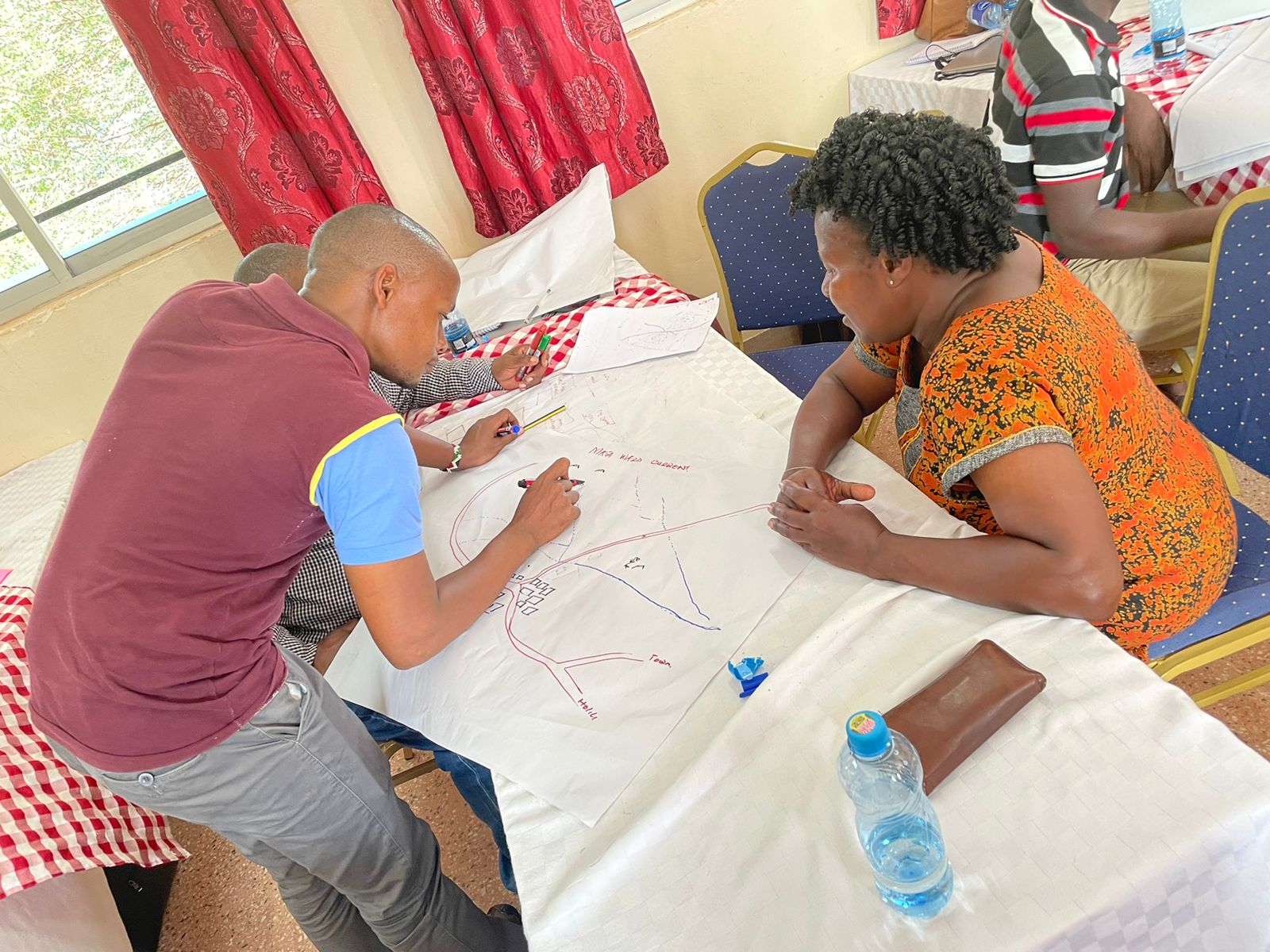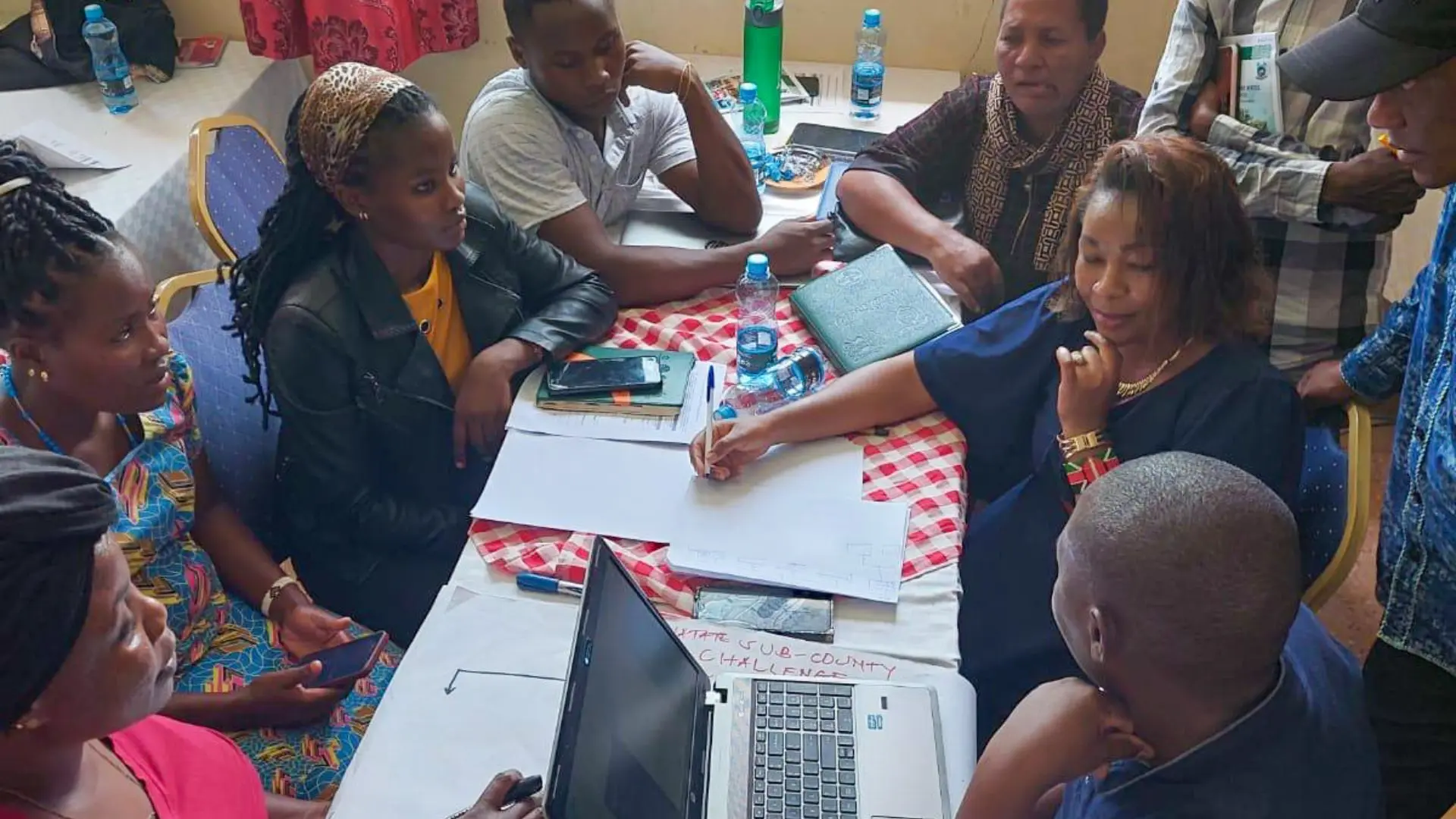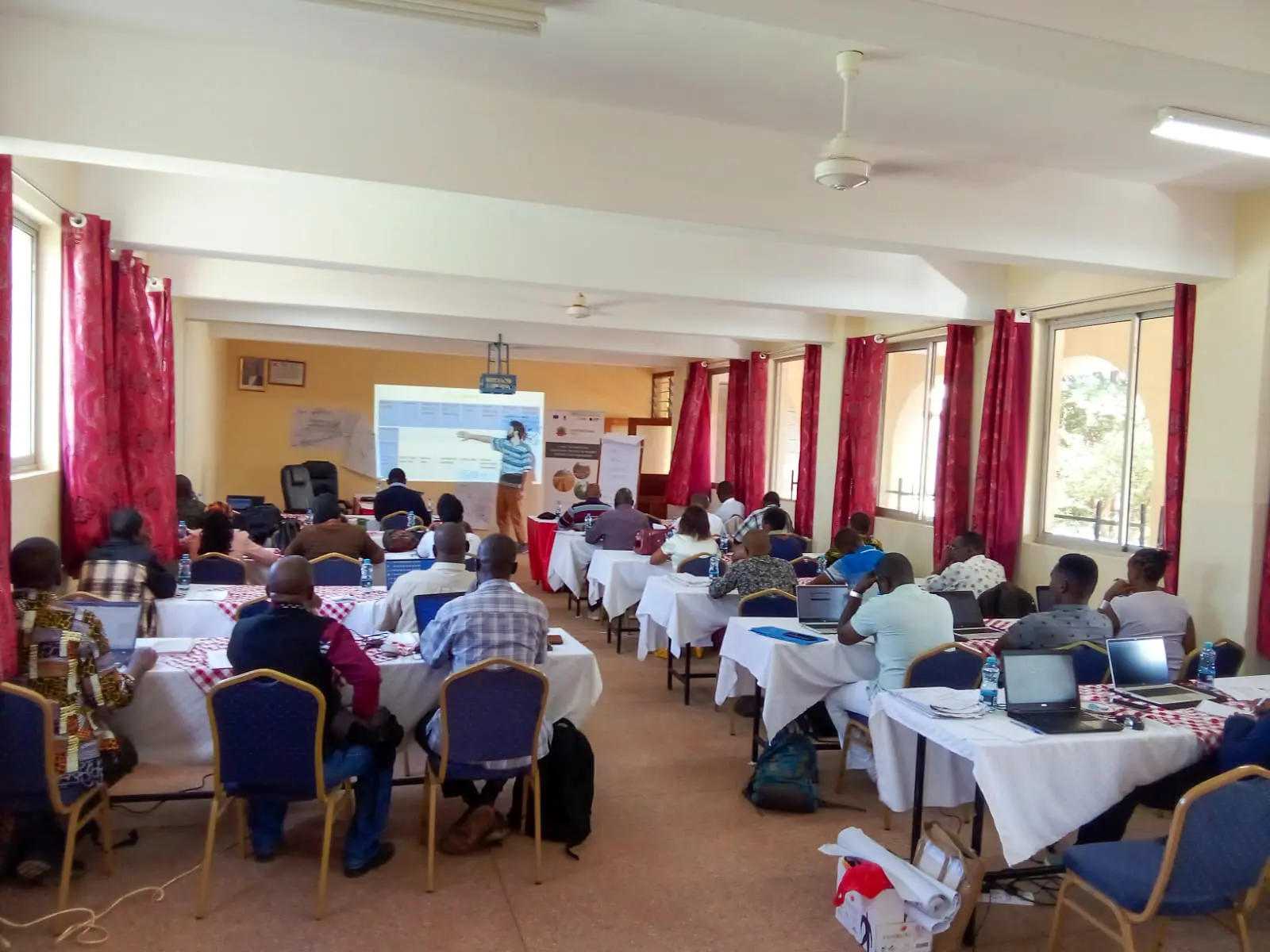Insights from sub-national LSC Hub workshops in Kenya
Date: February 2, 2024 Author: Mark van der Poel (WEnR)
At the workshop, participants were introduced to the content, features, and interface of the LSC hub.

Participants drawing their current landscape during the workshop
KENYA: The Land Soil and Crop (LSC) Hubs project organised two sub-national workshops in early February of this year as a counterpart to the national workshop held in Nairobi in December 2023. The four-day workshops, part of the work package “LSC-hubs use at local level”, took place in the preselected areas of Voi, Taita Taveta county (30 January-2 February), and in Busia, Busia county (5-8 February). The workshops were led by M. Okoti of the Kenya Agriculture and Livestock Research Organisation (KALRO). Stakeholder representatives of the respective counties, along with farmer organisations, NGO workers, private sector actors and extension officers, were among the groups trained.

Participants engaging in a discussion during the workshop
The workshop aimed to acquaint participants with the LSC hub’s content, functionality, interface and relevance. In doing so, participants were first brought up to speed on the concept of climate smart agriculture, the related practices, and the relevance of using the LSC hub by J. Recha of the International Livestock Research Institute (ILRI). Stakeholders were then trained on the Participatory Integrated Planning (PIP) approach by M. van der Poel of Wageningen Environmental Research (WEnR). The training emphasised the need for bottom-up empowerment to achieve long-term impact. Through a series of exercises, participants first analysed their current landscape, followed by an imagined future landscape, and were asked to draft an action plan to attain their visions.
“The most interesting part of the training we had was the PIP…. This model is capable of helping and changing our communities a lot,” said one participant.
The PIP approach is an inclusive, bottom-up approach that engages people in environmental stewardship through transitioning from short-term and individual thinking toward long-term integrated planning. Through a series of workshops and exercises, it motivates stakeholders to invest in the resilience of their landscape.

Participants involved in action planning
Addressing the Soil and Water Conservation (SWC) and Integrated Soil Fertility Management (ISFM) practices that were stipulated in their action plans, stakeholders were asked to consult the hub to find the necessary information for their implementation in an activity led by K. Were of KALRO. The information (sources) were evaluated according to certain criteria such as availability, format, and relevance. This evaluation was done in a final set of exercises. The analyses of information sources and the feedback on the hub interface were collected and processed to provide valuable inputs for further hub development.
